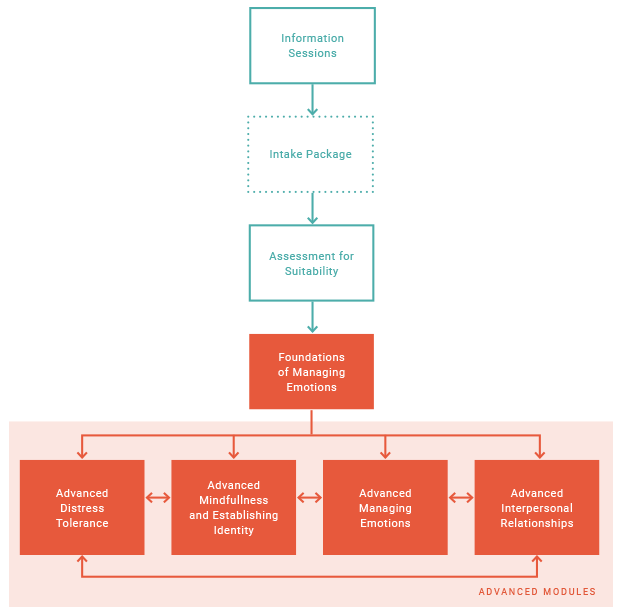MANAGING EMOTIONS PROGRAM
In response to significant needs on campus, this program is built on Dialectical Behaviour Therapy (DBT) and specific mindfulness principles and is intended to help those with emotional dysregulation learn new skills to “reprune” (reprogram) capacity to regulate emotion and behaviour. It is designed specifically in sections to be taught in semester blocks.
See our webinars for more information about the Managing Emotions Program.

Program Information
Our program began with an information session. If students with emotion dysregulation or Borderline Personality Disorder were interested, they discussed suitability with the campus family doctor. They then completed an intake package and scheduled an appointment for a suitability assessment with the designated group facilitator (we used the MH nurse). Provided they were deemed suitable for group participation, students began with the Foundations of Managing Emotions module which was trialed 6 times. After completion of this module, we hoped they could participate in up to 4 advanced modules (in any sequence). Each module consisted of 6 – 90 minute sessions. 27 students completed at least one Managing Emotions module in 2016. Two advanced modules have been trialed and a third is ready for trial.
To present the introductory lecture, the advertisement, attendance list and evaluation form are here.
The Information and forms required to begin the program at your facility are here. To teach your clinicians foundation skills, the presentation are here. Please email us if you are interested in receiving the Clinic Staff “Top Ten Skills” for Cue Cards. The comprehensive rating scale information to DERS can be found here.
The Foundations Module is now available for clinicians well trained in DBT. For more information, please contact us by email at pitproject.psychiatry@gmail.com.
This video is an introduction to emotional dysregulation, Post Traumatic Stress Disorder, and Borderline Personality Disorder. It was a mandatory first step in our Managing Emotions program.
To learn more about neuroplasticity, watch this video by Sentis.
